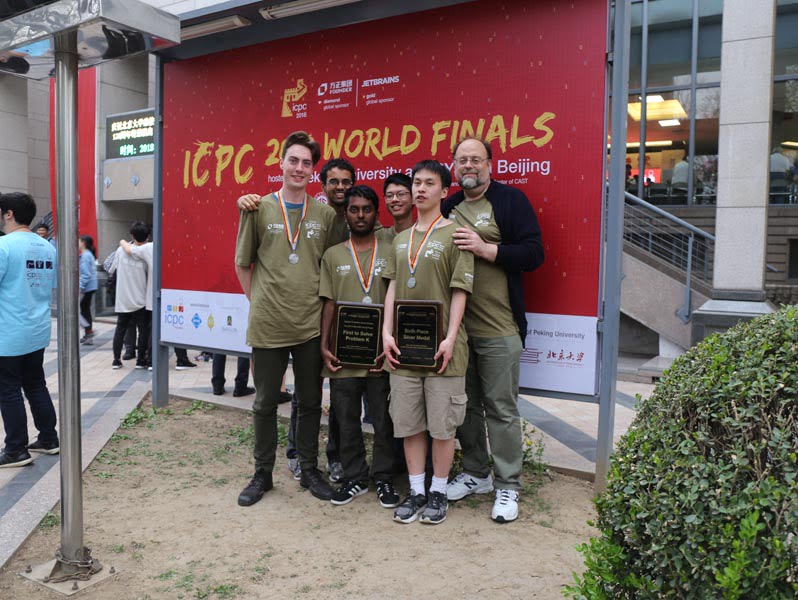The Massachusetts Institute of Technology, Cambridge, Princeton, and Berkeley were just some of the top universities that the University of New South Wales (UNSW) outranked in its top ten finish at the 2018 World Finals of the Association for Computing Machinery (ACM) International Collegiate Programming Contest (ICPC).
It’s the most prestigious global competition of its type. UNSW came sixth out of 140 teams competing in this year’s world finals, which required teams of three students to solve a total of 11 complex mathematical problems within a five-hour time limit.
UNSW managed to solve seven, while Moscow State University, which earned the title of the 2018 world champions, managed to solve nine.

Meanwhile, teams from the Moscow Institute of Physics and Technology, Peking University and The University of Tokyo placed in second, third and fourth places.
The UNSW team consisted of students Oliver Fisher, Mohammad Ishraq Huda and Ray Li, and were tutored and advised by School of Computer Science and Engineering associate professor Aleksandar Ignjatovic, and his coaching staff Joshua Lau and Raveen De Silva.
The success marks a resurgence in STEM interest. According to Mr Ignjatovic, there has been evidently increasing interest among young people in computer engineering and science related topics.
“Eight years ago in my algorithm course I had fewer than a hundred students. This year I have 720 students. Our enrollments have increased dramatically. I think it’s because people understand the importance of computer skills in relation to safe employment,” he told InnovationAus.com.
However, Mr Ignjatovic wished the government would prioritise more effort towards trying to keep highly-skilled talent in-country.
“The government often talks about the digital economy, and if I had any political influence I would suggest we immediately hire these brilliant young people. The team has already each been offered $250,000 by a Hong Kong company,” he said.
“The point is the American digital economy relies heavily on immigrants and, on the other hand, we are losing some of our best people to countries like America and Hong Kong.
“I don’t think it would be an expensive proposition to ask the government to see if government research institutions can hire more of our truly best young talent to keep them in the country,” he said.
“Because you cannot form a competitive digital economy, if you’re losing the best talent to the competition.”
The 140 teams that participated in this year’s World Finals emerged from local and regional ICPC competitions that took place in the fall of 2017.
Initially, selection took place from a field of more than 300,000 students in computing disciplines worldwide.
A record number of students advanced to the regional level. 49,935 contestants from 3,089 universities in 111 countries on six continents competed at more than 585 sites, all with the goal of earning one of the coveted invitations to Beijing.
The company that UNSW has kept during this competition is outstanding. Here are the top ranked teams for 2018;
- Moscow State University
- Moscow Institute of Physics and Technology
- Peking University
- The University of Tokyo
- Seoul National University
- University of New South Wales
- Tsinghua University
- Shanghai Jiao Tong University
- St. Petersburg ITMO University
- University of Central Florida
- Massachusetts Institute of Technology
- Vilnius University
- Ural Federal University
Do you know more? Contact James Riley via Email.

